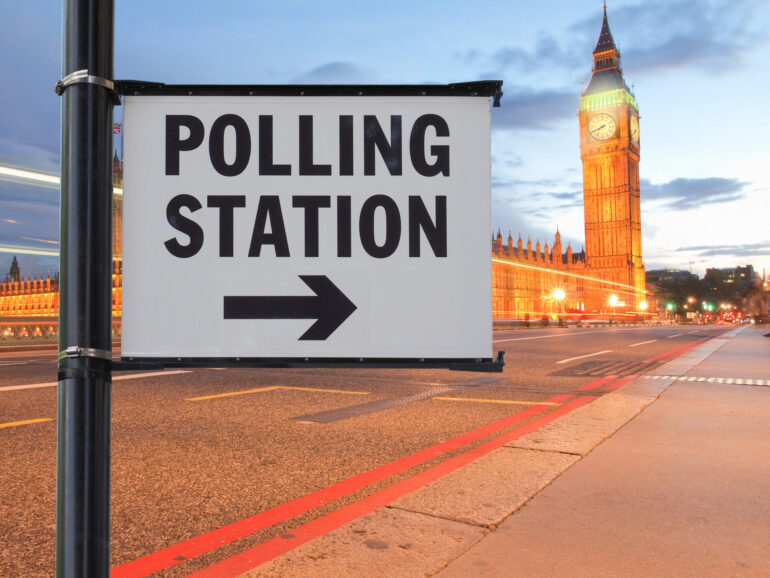Prime Minister Rishi Sunak has announced that a general election will be held on Thursday, 4th July. This decision follows a day of intense speculation as cabinet ministers arrived in Downing Street earlier this afternoon.
The announcement comes on the heels of positive economic news, with inflation falling to 2.3% in the year to April.
Chancellor Jeremy Hunt was scheduled to discuss this development on Robert Peston’s ITV show, but the pre-recorded interview was cancelled, according to Peston’s post on X (formerly Twitter).
Foreign Secretary Lord Cameron also returned early from a visit to Albania, Defence Secretary Grant Shapps also returned for the impromptu cabinet meeting which started at 16:15 this afternoon.
Announcing the general election this evening Sunak said: “Now is the moment for Britain to choose its future… We will have a general election on 4th July.”
While recent polling indicates a shift in public opinion the Conservatives are still significantly trailing Labour. The latest Ipsos poll, conducted between 8th and 14th May, shows Labour leading with 41% and the Conservatives at 20%, narrowing Labour’s lead from 25 points to 21.
Labour’s support dropped by three points while the Conservatives gained one point compared to the previous month.
The Liberal Democrats and the Greens both increased by two points, each securing 11%. Reform UK saw a decline, dropping four points to 9%.
Rishi Sunak’s personal approval rating showed slight improvement, with a one-point rise in satisfaction and a three-point drop in dissatisfaction, resulting in a net rating of minus 55.
Public sentiment towards the Government remains largely negative, with 78% of respondents believing the Government has performed poorly, while only 13% think it has done a good job.
In contrast, Labour leader Sir Keir Starmer’s net satisfaction rating has improved to minus 18 points, up from minus 31 the previous year. 32% of respondents are satisfied with his performance, while 50% are not.
The Ipsos poll also revealed that nearly three quarters of voters feel it is “time for a change” at the next general election, with 73% agreeing with the statement. Only 18% believe it is not time for a change.
The last election held in July was in 1945, where Winston Churchill’s Conservatives were defeated by Clement Attlee’s Labour Party. The swing was 12 points.
No sitting Prime Minister has come back from a 20-point or more deficit in the polls to win to date.
John Phillips, CEO of Spicerhaart and Just Mortgages, said: “While the Prime Minister and his Government are clearly using the positive news on inflation as their moment to move, it still feels somewhat like turkeys voting for Christmas – especially if polling figures and general sentiment is anything to go by.
“Nevertheless, now we finally have a date, it will be interesting to see how the main parties ramp up their campaigns – and how housing and mortgages will fit into their plans. This is especially true for Labour and Kier Starmer who set out their ‘first six steps’, which did not include a plan for housing.
“Both play a critical role in the wider economy and remain carefully balanced amid improving consumer confidence. While market conditions have improved, it’s still far from plain sailing for many borrowers. We certainly need to see some concrete plans on how they plan to answer the clear affordability challenges that remain in the market, as well as the persistent undersupply of housing. An action plan is also needed to encourage landlords to remain in the market to support the millions of households that rely on the private rental sector.
“With real pressures on affordability, it would be fantastic to see a return of schemes such as Help to Buy or something similar that includes second-hand homes. Given that it is proving to be the main way buyers are getting onto the property ladder in the current climate, it would be great to see more support given to the likes of Shared Ownership and other low deposit schemes.”



